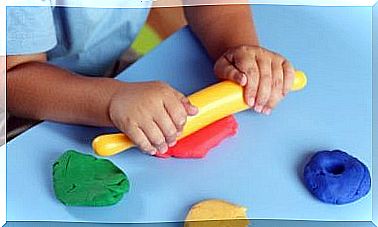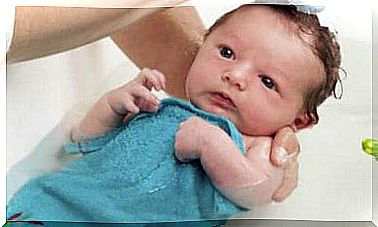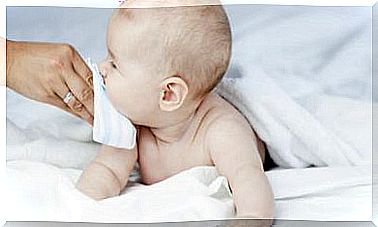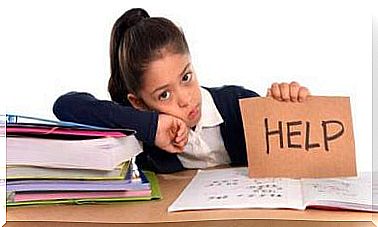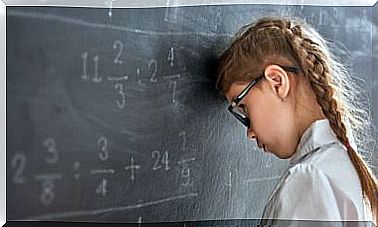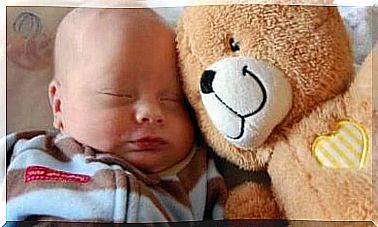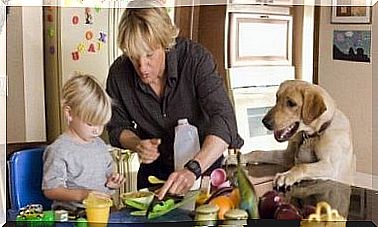What Can We Do With An Overprotected Child?
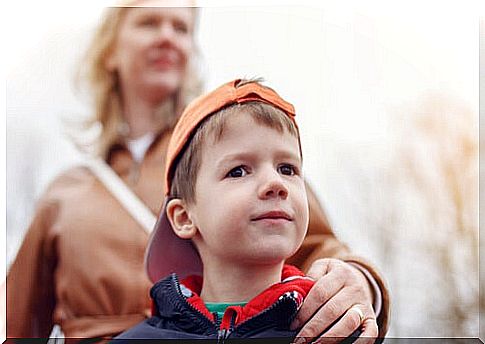
Taking care of our children and wanting the best for them doesn’t necessarily mean being overprotective parents. Do you know what the consequences are of educating an overprotected child?
It is evident that all parents want their children to have the best and develop through the core values for life. However, sometimes without even realizing it, they are creating an overprotected child. For what reason?
Many parents adopt an overprotective upbringing to prevent their children from suffering and to ensure that they have everything at their disposal and are happy. Overprotectiveness, however, is a mistake. The main reason is that it prevents children from developing and learning to do things on their own, to overcome their own difficulties.
At some point, all parents are overprotective and, to some extent, this is normal, an instinct that drives us to prevent our children from suffering.
However, if this attitude becomes the norm in our children’s education, there is a danger that we will end up causing them harm.
Unfortunately, the overprotected child is very common nowadays, as is seeing parents accompanying their almost adult children to their study centers, who then turn to their parents when the slightest problem arises. At this age, they are almost adults. This is a real danger.
What does the term “overprotectiveness” include?
Overprotectivity is a phenomenon whose definition is rather heterogeneous. Consequently, the limits that determine it are quite blurred. Nonetheless, there are some behaviors that are responsible for raising an overprotected child:
- Do not allow them to eat alone to prevent them from getting dirty. The consequence is that, at about 2 or 3 years old, children still do not know how to use cutlery by themselves.
- Dress them up. The excuse used for this practice is that “we do it faster”. The danger is that it becomes a habit.
- Help them take care of their own hygiene without giving them a chance to try and do it themselves. For example, washing hands, teeth, etc.
- Continuously inform them of what to do and make decisions for them that they are able to make for themselves. At the age of 4 or 5, children can start choosing: food, clothing … However, there are parents who make decisions about children because only they know what is right for them, or what they want or what they need.
- Pay attention and intervene in any discussion that the child has with another partner, always taking sides in favor of the child and without knowing who is to blame for what has happened.
- Collect his toys so he doesn’t get too tired.
- Become the child’s agenda. That is to say, plan what to do and at what time.
- Prepare his backpack for school.
- Call him several times a day to check him and always know where he is.
- Always accompany him, when he is now considered an “adult”. For example, when taking an exam or even at a job interview.
How can we avoid educating an overprotected child?
Advice for parents
The main problem with many parents being overprotective is that they don’t know the benefits the child receives from being able to do things without someone’s help. When your child asks for help, it is best to give them suggestions that help them solve the problem using their own resources.
It is normal for the child to make mistakes. However, let’s avoid preventing them and preventing them from realizing them. The best thing is to show him that, little by little, he gets things done. Of course, right now we need some time, because we have to remember that we are still teaching him to get by and, consequently, he has to assimilate a set of rules.
Another good idea is to explain to the child the reason for what we do, so that he can act alone even without the presence of an adult to explain how to do it. We can start with simple gestures, such as setting and clearing the table, or involving him in easier housework, having him take care of his hygiene, etc.
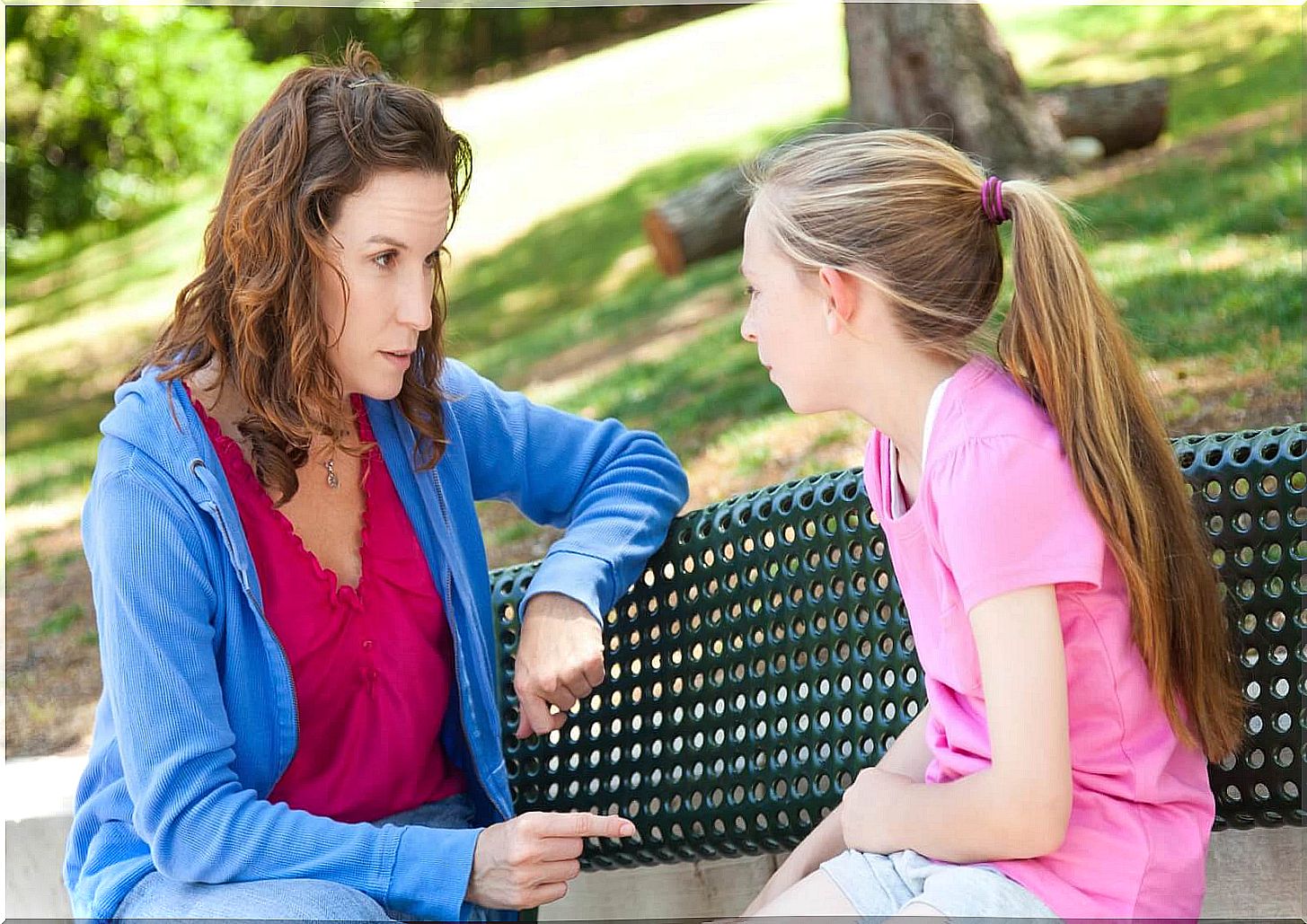
If we are faced with a shy child, parents can try to get him out of the house more often, so that he can broaden his circle of friends, share his feelings with other companions … Never, but forcing him to do so. In the latter case the result would be even worse, because children can end up developing a lonely and suspicious personality.
Faced with situations that could be complicated, instead of avoiding them we must prepare children through words, which will become our best ally.
What’s the limit: spoil or protect?
As noted above, we cannot confuse caring for and showing love for your child with overprotectiveness. It is time to establish some principles. What most parents want is for their child to develop through learning a set of values that help them grow as a person.
What such a small child needs is that the environment around him (the family one, but not only) is as similar as possible to what he will find in the future, when he faces the world. That is to say, that you learn a little at the vote to be independent, to draw your own conclusions and to understand what to do at all times, even in the absence of established rules.
That is to say that talking to your child, trying to understand him, wanting to listen to his problems, doubts, complaints, looking for solutions together, talking instead of arguing, speaking calmly instead of shouting, gently explaining why he behaved badly … All this does not mean educating an overprotected child. It means to educate.
